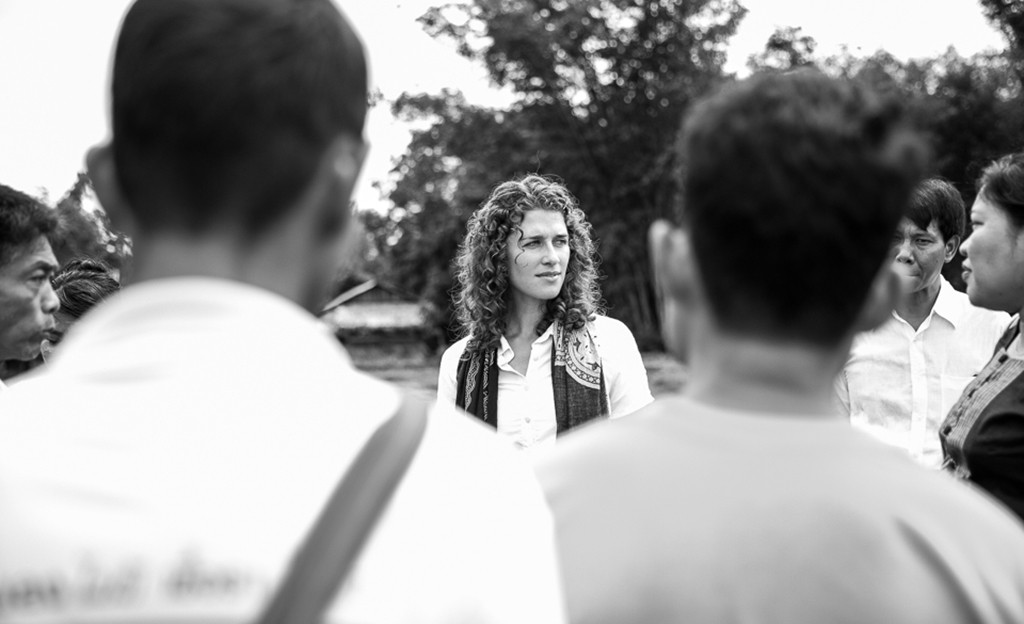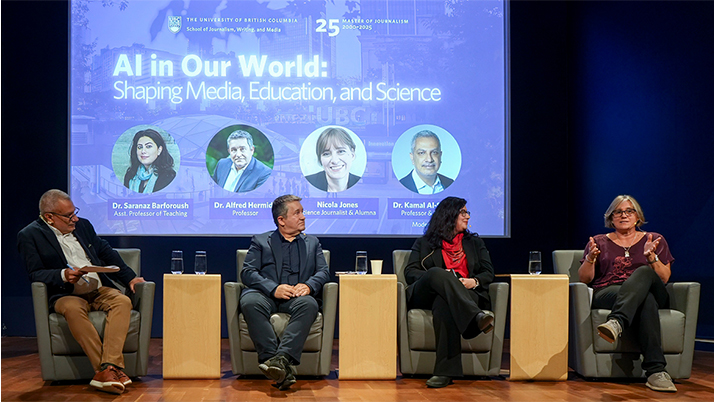

Kendyl Salcito is dedicated to promoting human rights. She graduated from UBC Journalism in 2007 and the following year she co-founded NomoGaia – an organization dedicated to promoting human rights among global corporations.
Can you tell us a bit about your current role?
Executive Director of NomoGaia, a Denver, Colorado-based think tank that develops processes for evaluating the human rights impacts of multinational companies. We also publish the findings of those evaluations, assessing corporate projects like mines, factories, oil fields, and plantations.
How did your j-school experience help you transition into a career in journalism?
My j-school experience helped as much in my transition out of journalism as in. In today’s media climate, with obsessions over page clicks and advertising dollars, it may be easier to use journalism skills outside of a news outlet than in. Doing field-based human rights research on multinational corporations puts my journalism skills to work every day. I need to draw out painful stories of loss from affected rights holders, and persuade corporate managers to spill the beans about in-house security SNAFUs, employment challenges and environmental hazards built into their operations. Investigative and feature reporting classes from Dave Beers and Peter Klein still loom large in my mind, not just when I’m doing my background research before interviews, but when I’m trying to build the narrative around a company’s interaction with rightsholders. Companies only change if they see a real risk to their own operations – making the lives of the vulnerable matter is a storytelling feat for which I still channel my UBC profs.
Of the lessons you learned at UBC, which one has proven to be the most valuable?
Do your homework. Knowing more about a topic than your interviewee expects makes you ask better questions. Also, doing your homework protects you from the embarrassment of publishing a false statement as fact or letting an interviewee get away with lying to you.
What’s been the piece of journalism you’ve produced of which you’re most proud?
I still love my Tyee piece from 2006 about B.C.’s mining laws. There was this nutty old coot that kept buying up the mineral rights under his neighbors’ property and traipsing around with a rifle and night vision goggles, trying to get them off of “his mountain.” He was 100 per cent backed by the law, and the mines minister said gloriously insensitive things that I got to put into print. A few months after the story ran, B.C. quietly changed the Mineral Tenure Act to change the way miners could operate on private land. It wasn’t perfect, but it was something. My most impactful writing now isn’t particularly journalistic or zippy anymore – it’s all human rights reports and academic papers.
Would you recommend the j-school?
Absolutely. My Master’s thesis connected me with my current colleagues and led me into the human rights work I love. The research and interview skills I acquired at UBC, combined with the opportunities provided – both through summer work programs in Vancouver and through the school’s strong and growing commitment to international reporting – have been invaluable to me.


